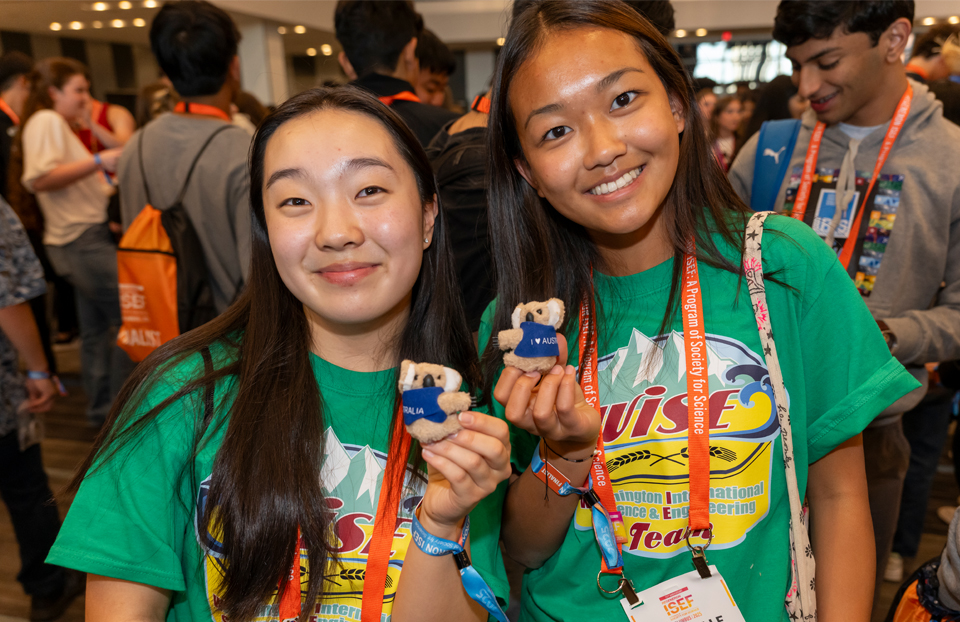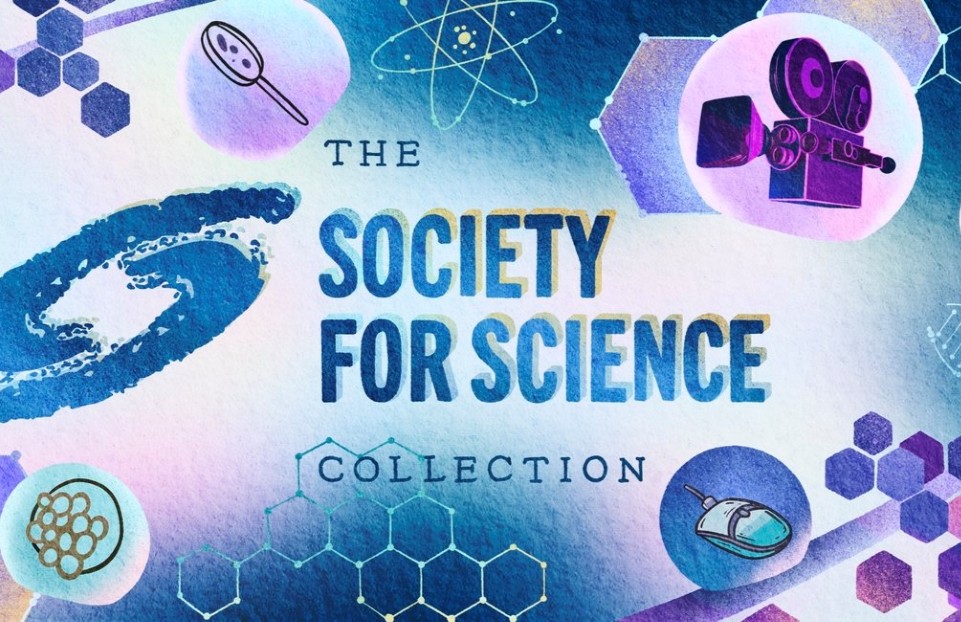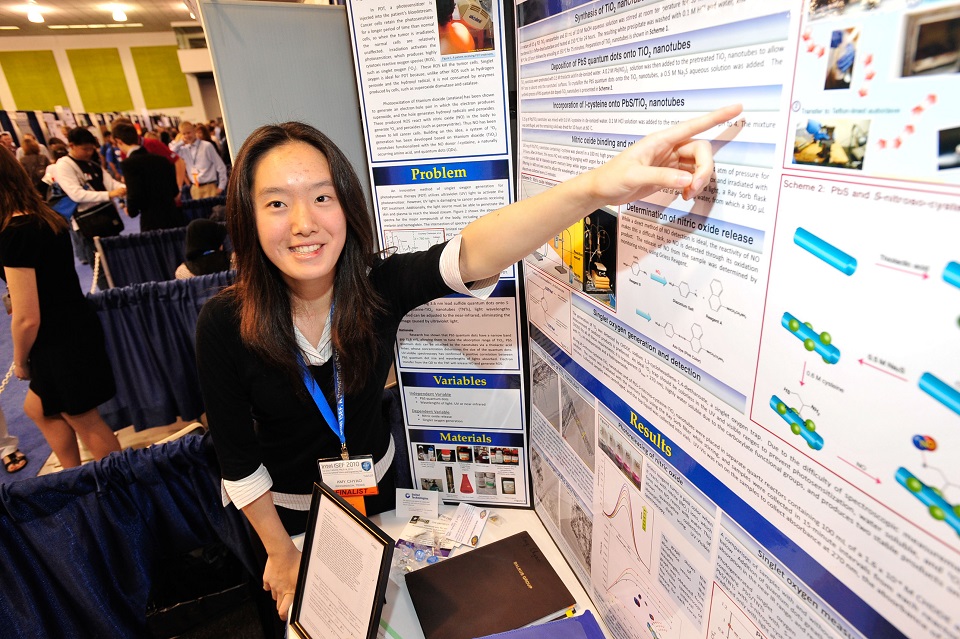Five questions with Shriya Reddy, winner of the first Craig R. Barrett Award for Innovation
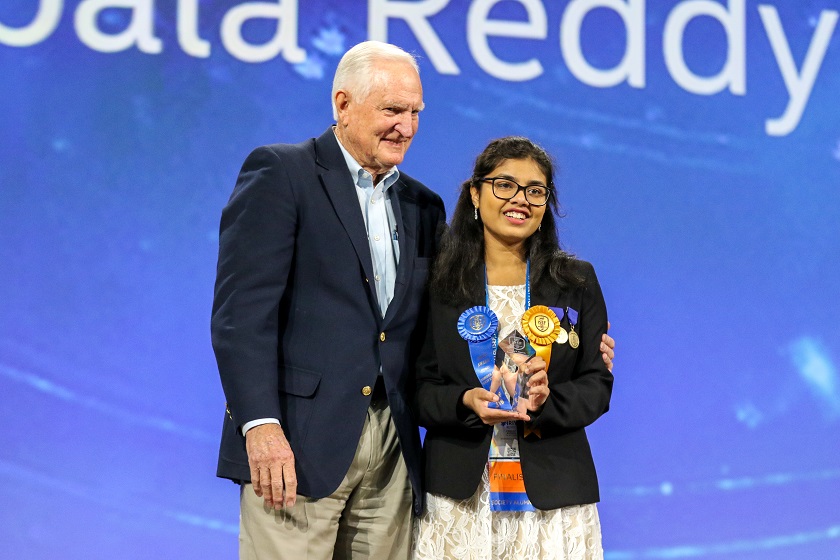
This post is part of a series profiling the top 22 Best of Category award winners of the Intel International Science and Engineering Fair (ISEF) 2019. Intel ISEF is the largest pre-college, international STEM competition in the world. This year’s competition included participants from 80 countries, regions and territories. Every year, the brightest young scientists from all over the world come together to participate in this incredible fair.
In this year’s competition, Shriya Reddy of Northville, Michigan received the newly announced $10,000 Craig R. Barrett Award for Innovation. One of the top winners in the category of biomedical and health sciences, Shriya developed a noninvasive approach for detecting skin cancer using light and a protein on the cancer cell’s surface, an innovation that could offer high accuracy and low cost in the detection of melanoma lesions.
Here is our conversation with Shriya.
What was your experience like at Intel ISEF?
My ISEF experience is a highlight in my life thus far. Every moment, every interaction is locked away as a precious memory. Students spanning the globe brought their cultures to create a diverse environment that you could sense throughout the fair. My discussions with the judges opened my eyes to other directions I could take my research and techniques I could use to communicate its benefits. Every finalist around me questioned critical problems, and their research worked to develop solutions for those problems.
I thank ISEF with all my heart for everything it does to ensure that students like me, who are passionate about science, have the opportunity, motivation and inspiration to change the world.
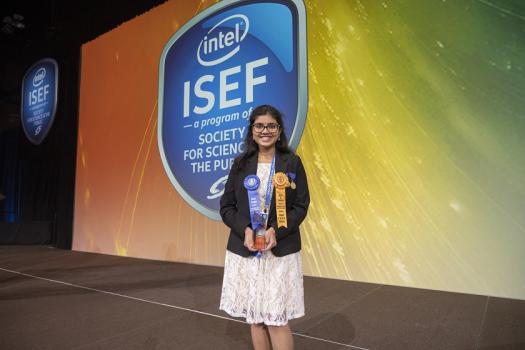
What’s the biggest lesson you’ve learned thus far in your scientific career?
The biggest lesson I’ve learned is to accept the prevalence of failure.
When I first began looking for research opportunities, I never expected the massive amounts of rejection. I never expected the number of times an idea or experiment would crash and burn. I had to learn how to move beyond the disheartened feelings that led me to believe nothing would ever turn out right.
Looking back on these struggles, I’m so grateful because I know that any success I do experience is nothing without the failures that preceded it. Life is comprised of peaks and valleys coming one after another—a set of slumps usually means a summit is just over the horizon.
What is the last book you read?
Atomic Habits by James Clear. I don’t often delve into nonfiction, but this book captured me within the first few pages and changed my life. James Clear breaks down how habits are formed, how they can be broken and how small changes over time can have lasting results. Especially as a student, I was thankful to learn ways to target procrastination and diminish its influence on my life.
What do you feel is the most important invention/scientific breakthrough in the world?
I would like to acknowledge the significance of the printing press in the advancement of human civilization. As a rule, science progresses as the individual contributions of many are poured into an expanding pool of knowledge. The printing press allowed for more efficient collection, organization and standardization of this knowledge. As a result, the distinct science fields that we know today— astronomy, botany, chemistry, etc.—emerged and spread to a much larger population, accelerating the growth of modern science throughout the world.
How do you unwind when you’re not doing research?
You’ll often find me on my couch with a laptop, working on some project. To unwind, I generally try to keep a positive mindset and allow myself moments of pure joy. I’ll listen to music and dance to my heart’s content.
